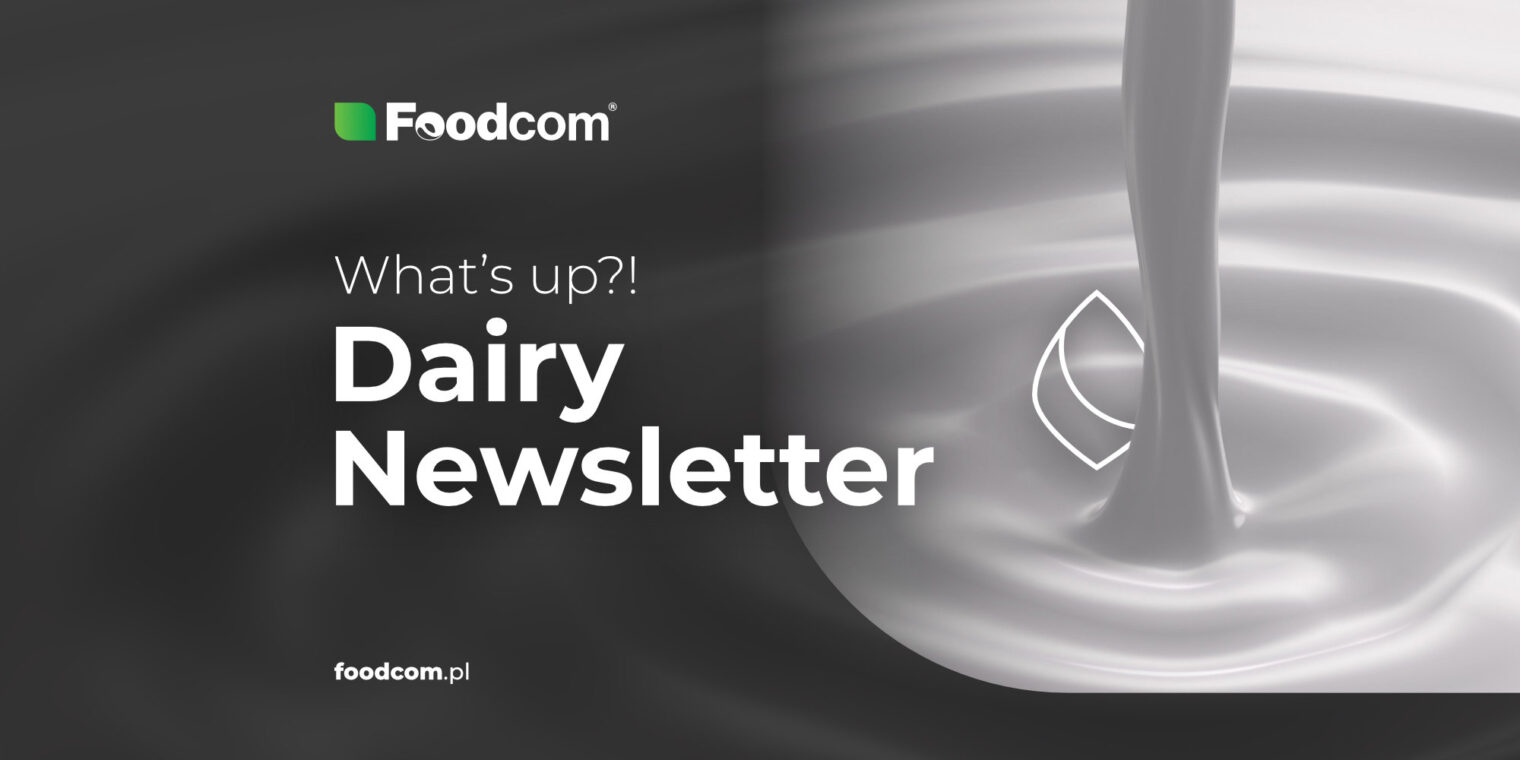Zusammenfassung
Inhaltsübersicht
This is our summary of the week 38 on the European dairy market divided into 4 main categories.
SMP is offered in the area of 2.70-2.74 EUR/kg EXW FR/DE/PL. You can find single trucks with prompt collection for less than 2.70 EUR/kg EXW EU. FCMP is offered around EUR 3.30/kg EXW EU. SWP with prompt collection is offered in the area of 980 EUR/MT EXW EU. WPC80 Instant is stable with some signs of strengthening. Producers offer around EUR 8700-8800/MT EXW EU.
After a few weeks of increases, the price of Gouda / Edam cheeses has slowed down, but is still high around 3.55 EUR/kg EXW DE/NL. However, the interest does not diminish, and we still see a lot of inquiries. Mozzarella is offered at 3.10 – 3.15 EUR/kg EXW FR/NL. The interest is slightly decreasing for Mozzarella and Cagliata, but there are still buyers who haven’t covered their stocks yet. The export of cheeses outside the European Union is also gradually growing compared to previous years.
Large amounts of frozen butter are offered in the region of 4.15 – 4.18 EUR/kg EXW NL/DE/PL. Fresh butter is offered above 4.35 EUR/kg EXW PL, some producers say that sales of the butter in cubes are at a very satisfactory level. AMF is offered above 5.60 – 5.65 EUR/kg EXW NL/DE/PL.
It was another week in which there was less raw material than expected, which resulted in very high spot prices for whole and skim milk. Cream is getting stronger, which translates into high production cost of fresh butter. SMC’s price is at around 2.55 – 2.65 EUR/kg all over Europe and the availability is scarce.
Powders
SMP is offered in the area of 2.70-2.74 EUR/kg EXW FR/DE/PL. You can find single trucks with prompt collection for less than 2.70 EUR/kg EXW EU. FCMP is offered around EUR 3.30/kg EXW EU. SWP with prompt collection is offered in the area of 980 EUR/MT EXW EU. WPC80 Instant is stable with some signs of strengthening. Producers offer around EUR 8700-8800/MT EXW EU.
Cheese
After a few weeks of increases, the price of Gouda / Edam cheeses has slowed down, but is still high around 3.55 EUR/kg EXW DE/NL. However, the interest does not diminish, and we still see a lot of inquiries. Mozzarella is offered at 3.10 – 3.15 EUR/kg EXW FR/NL. The interest is slightly decreasing for Mozzarella and Cagliata, but there are still buyers who haven’t covered their stocks yet. The export of cheeses outside the European Union is also gradually growing compared to previous years.
Fats
Large amounts of frozen butter are offered in the region of 4.15 – 4.18 EUR/kg EXW NL/DE/PL. Fresh butter is offered above 4.35 EUR/kg EXW PL, some producers say that sales of the butter in cubes are at a very satisfactory level. AMF is offered above 5.60 – 5.65 EUR/kg EXW NL/DE/PL.
Liquids
It was another week in which there was less raw material than expected, which resulted in very high spot prices for whole and skim milk. Cream is getting stronger, which translates into high production cost of fresh butter. SMC’s price is at around 2.55 – 2.65 EUR/kg all over Europe and the availability is scarce.
Kategorien




![Przegląd i analiza rynku nasion w 2025 [Global Report] Przegląd i analiza rynku nasion w 2025 [Global Report]](https://foodcom.pl/wp-content/uploads/2025/05/Global-Report-szablon-pod-bloga-seeds-300x150.png)


